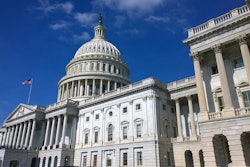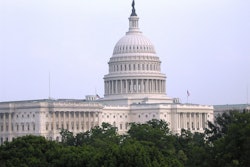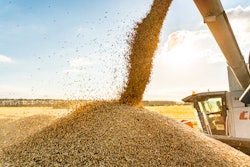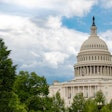
The U.S. Department of the Treasury and Internal Revenue Service (IRS), in collaboration with key Biden-Harris Administration partners, including the Environmental Protection Agency (EPA), Department of Transportation (DOT), Department of Agriculture (USDA), and Department of Energy (DOE), announced groundbreaking guidance to drive innovation and reduce emissions in the aviation sector through the Sustainable Aviation Fuel (SAF) Credit.
The SAF Credit, established by the Inflation Reduction Act (IRA) as part of President Biden's Investing in America agenda, aims to stimulate the production of low-carbon fuels, addressing the challenging task of transitioning the aviation industry toward sustainability. Treasury Secretary Janet L. Yellen emphasized the administration's commitment to promoting innovation in the clean energy transition, stating, "Incentives in the Inflation Reduction are helping to scale production of low-carbon fuels and cut emissions from the aviation sector, one of the most difficult-to-transition sectors of our economy."
Key partners from the Biden-Harris Administration, including Secretary of Energy Jennifer M. Granholm, Secretary of Agriculture Tom Vilsack, and Transportation Secretary Pete Buttigieg, expressed their support for sustainable aviation fuel as a crucial tool to reduce greenhouse gas emissions and promote economic growth.
Secretary Granholm highlighted the potential of sustainable aviation fuel to provide low-carbon alternatives made in America, contributing to the decarbonization of challenging areas in the transportation sector. Secretary Vilsack emphasized the economic opportunities for American agricultural producers, with the SAF industry projected to reach 36 billion gallons.
Transportation Secretary Buttigieg stressed the urgency of achieving net-zero carbon emissions in aviation by 2050 and emphasized the administration's commitment to advancing sustainable aviation fuels that support economic growth and opportunities in American aviation.
John Podesta, Senior Advisor to the President for Clean Energy Innovation and Implementation, praised the guidance, stating, "Sustainable aviation fuel is a critical tool for tackling the climate crisis," and he highlighted the certainty provided by the Treasury Department's guidance, offering multiple pathways for producers to compete in decarbonizing the aviation sector.
The Treasury Department's guidance clarified eligibility for the SAF Credit, providing incentives for the production of SAF that achieves a lifecycle greenhouse gas emissions reduction of at least 50% compared to petroleum-based jet fuel. Producers are eligible for a tax credit ranging from $1.25 to $1.75 per gallon, depending on the extent of the emissions reduction.
The guidance includes several qualifying fuels, such as biomass-based diesel, advanced biofuels, cellulosic biofuel, or cellulosic diesel approved by the EPA under the Renewable Fuel Standard (RFS). Fuels achieving a 50% or greater reduction in lifecycle greenhouse gas emissions under the CORSIA standard also qualify.
In addition to the guidance, the EPA, DOT, USDA, and DOE announced their commitment to releasing an updated version of DOE's GREET model by March 1, 2024. The GREET model will offer an additional methodology for SAF producers to determine the lifecycle GHG emissions rates, providing more options for qualifying for the SAF Credit during 2023 and 2024.
Industry responses:
- National Corn Growers Association (NCGA): The NCGA expressed pleasure in the Treasury Department's decision to use a modified version of the GREET model for allocating tax credits for sustainable aviation fuels. NCGA President Harold Wolle stated, "We are encouraged that Treasury will adopt some version of this model," emphasizing their eagerness to contribute to lowering the aviation sector's carbon footprint.
- Renewable Fuels Association (RFA): RFA President and CEO Geoff Cooper commended the Treasury Department for recognizing the GREET model's value in determining eligibility for the SAF Credit. While acknowledging the need for further details, Cooper expressed optimism that the guidance could open significant opportunities for biofuel producers, farmers, and airlines.
- Growth Energy: Growth Energy CEO Emily Skor welcomed the Treasury Department's guidance but stressed the need for more clarity on the proposed GREET model changes. She emphasized the importance of sound science and consideration of the environmental benefits of American-made bioethanol in achieving SAF goals.
- American Soybean Association (ASA): The ASA hailed the Treasury Department's guidance as positive for U.S. soybean farmers, noting that the use of the GREET model and the recognition of soy-based SAF for the tax credit could open new opportunities for the soy industry in sustainable aviation fuel production.
- American Farm Bureau Federation: Farm Bureau Federation President Zippy Duvall lauded the administration's decision to use the GREET model for the sustainable aviation fuel tax credit. Duvall highlighted the positive impact on agriculture's role in climate-smart production, meeting the public's demand for sustainable energy sources.
These collective efforts signify a significant leap toward a more sustainable future for the aviation sector, aligning with broader climate goals and fostering collaboration between government agencies, industries, and farmers.


















